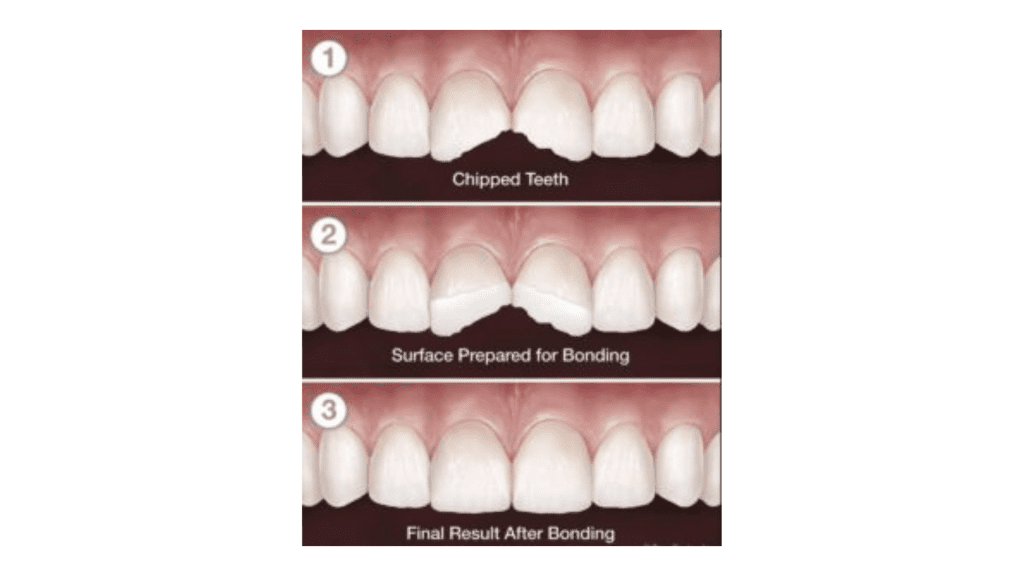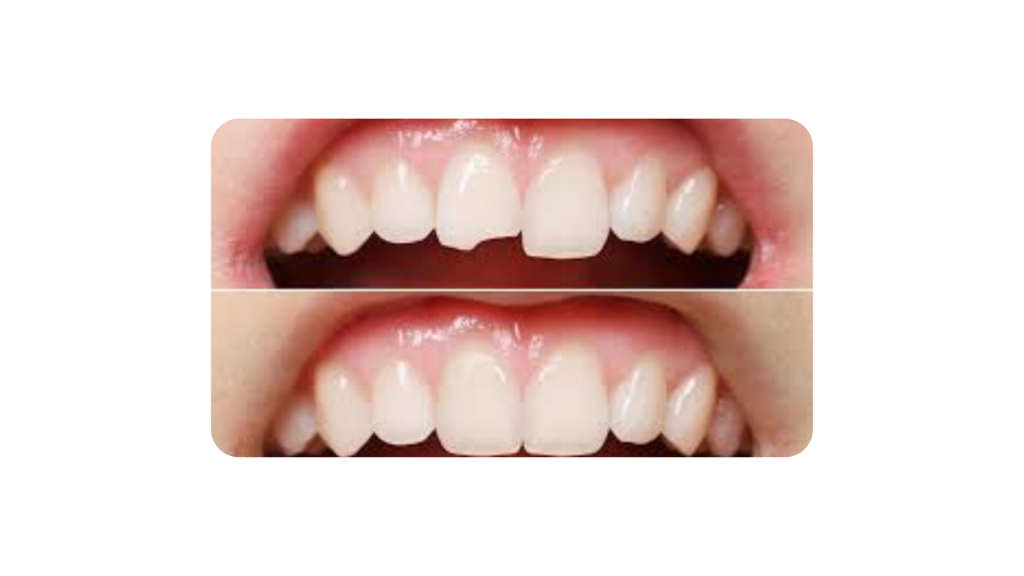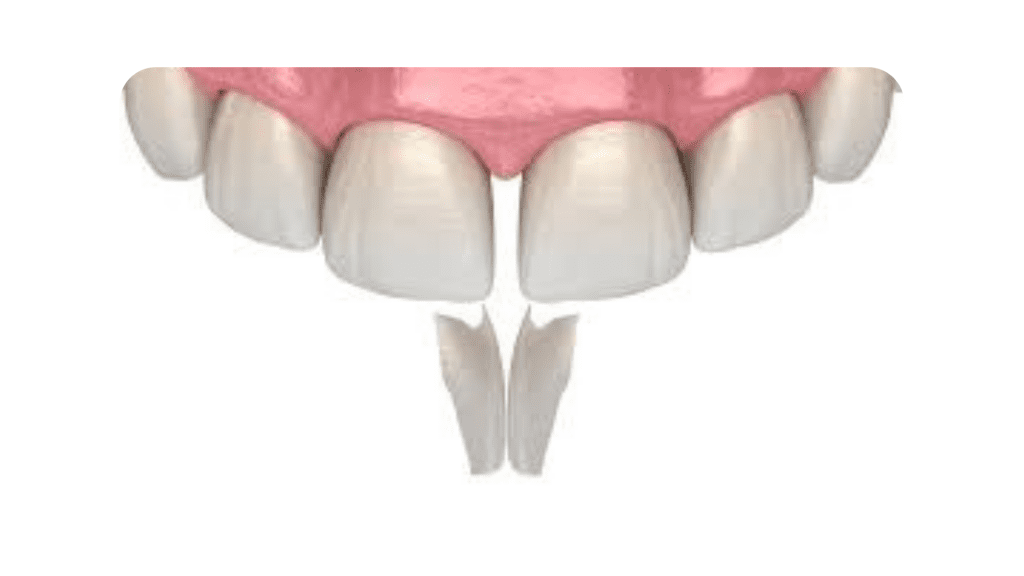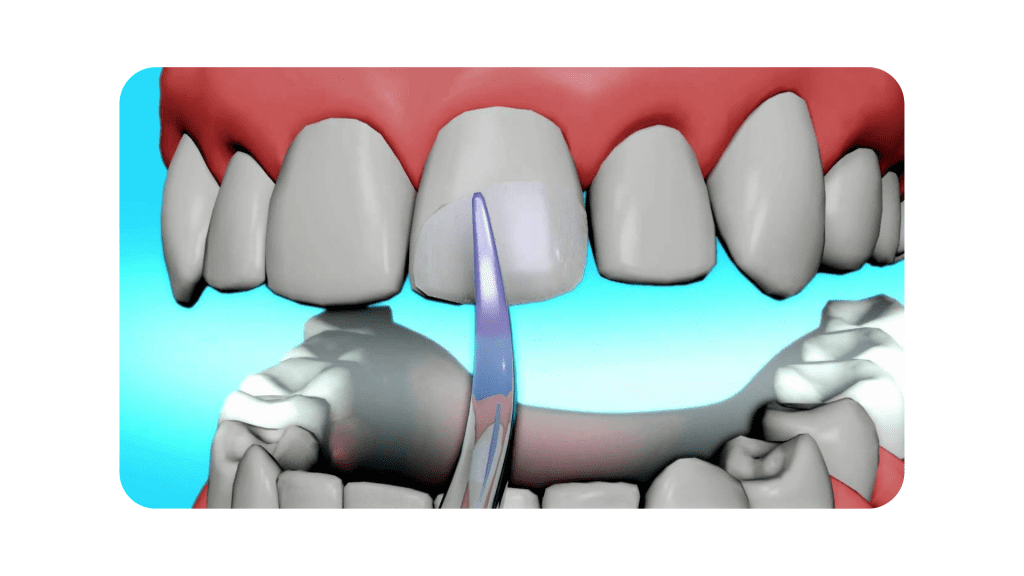Tooth Bonding Solutions

How it works, how much it costs, and what to expect.
At Summerlin Dental Solutions if you are looking to fix chips, cracks, and imperfections in your smile from a dentist near you tooth bonding could be your best option. Find out more about tooth bonding cost, procedure, and what you can expect.
You thought it would be a great idea to head out and play ultimate frisbee. After all, fresh air and exercise are both good for you, right?
And it was a great idea – until you weren’t paying attention and got slammed in the face by another player. Now you have a chipped tooth and are wondering what to do about it. When you visit us we will likely recommend tooth bonding. Let’s discuss.
Tooth bonding, also known as composite bonding, is a relatively simple procedure that can be used for a variety of reasons. It consists of adding a tooth-colored composite resin material to your tooth and shaping it to look like a natural tooth that also matches your tooth shade.
The procedure can be used to fill small gaps between teeth, repair chips or cracks, or enlarge small teeth. You can even have a thin layer placed over the front of a tooth to hide its discoloration. This option is less durable than porcelain veneers and more prone to staining, but is also significantly cheaper, making it more financially accessible.
To perform the procedure, your dentist will first compare the color of your natural teeth to a shade guide to select a color that perfectly matches. They will then apply a composite resin in that shade to the damaged tooth or teeth using a powerful bonding agent.
We will work the resin to create the desired shape, then harden it with an ultraviolet light. After the resin has hardened, we can still shape it a bit and make any final adjustments to leave you with a “false tooth” so natural looking no one will ever suspect it isn’t real.
Bonded teeth are generally only for cosmetic purposes and bonding is usually performed only on the front teeth.
Dental bonding before and after

Dental bonding can have a significant impact on the way your teeth look. The procedure is relatively quick and totally painless and the results are well worth it. For bigger chips, bonding can be a great solution to re-perfecting your smile. Sometimes smaller chips don’t have enough surface area to bond to, so it could fall off more easily. Ask us for your best options.
Why get tooth bonding?
Bonding is a cost-effective and efficient way to remedy a number of cosmetic dental issues. It can be used to build up teeth that have been damaged by an impact or enlarge a tooth that never grew in all the way.
If you have small gaps between two or more teeth, bonding can be used to build up the teeth on either side and eliminate that odd gap.
Other procedures, such as veneers or dental crowns may also be used for certain situations. However, dental bonding is less expensive and less involved. Unless you’re also having a cavity filled, it usually doesn’t even require anesthesia to perform the procedure. For one tooth, your visit should only last about an hour.
Does bonding ruin your teeth?
Another handy aspect of bonding is that it does not ruin your healthy tooth underneath. We will roughen the tooth up slightly to ensure that the bonding material can stick well. Other than that, your original tooth will be left alone and intact.
This is not the case with other procedures, like veneers, in which the dentist grinds down the front of your tooth to make space for the veneer.

Over time, your tooth may become dependent on the resin as a protective shell and if the bonding is removed for whatever reason, the tooth enamel can be more vulnerable. However, the procedure itself does no damage to the tooth and can be touched up as often as necessary to maintain a gorgeous smile.
How long does tooth bonding last?
The materials used are not as sturdy as your natural teeth. The composite resin is also more likely to stain, particularly if you smoke or drink a lot of coffee or dark-colored soda.
You can help your tooth bonding last longer by avoiding activities like chewing on ice, biting down on hard food or candies, or anything else that puts more stress on the resin. Keeping up with your oral hygiene by brushing and flossing regularly can also help avoid problems with staining.
As a rule of thumb, bonding can last about 5-10 years – perhaps a little more with proper care.
How to prepare for tooth bonding
Tooth bonding is a straightforward procedure and doesn’t require any special preparation. Yay!
However, you will want to discuss your options with your dentist to ensure you’re a candidate for the procedure. Tooth bonding is only viable if your tooth is strong and healthy enough to stand on its own. If your tooth is too badly damaged or decayed, it will need extra support that tooth bonding doesn’t give. For example, you may need a custom-fit crown designed to hold together and/or protect what remains of your natural tooth.
Book a Dental Consultation!
How much does tooth bonding cost?
Because of its relative simplicity, tooth bonding is also not too expensive, relatively speaking. The cost will vary considerably depending on the extent of your procedure.
The average cost of dental bonding ranges from about $200-$400 per tooth. However, you might pay as little as $100 for a very small procedure and up to $1000 for something more extensive.
Keep in mind that these prices are per tooth. To close gaps, it is usually necessary to put bonding on two adjacent teeth, which will make it a bit more expensive.
Furthermore, dental bonding is usually considered a cosmetic dentistry procedure, but not always. This means that your dental insurance may or may not cover it. It never hurts to ask though, because it depends on several factors. If it’s necessary for your health or to prevent it from chipping or cracking further, your dental tooth bonding would likely be covered by insurance.
Bonding vs veneers
Like bonding, dental veneers can be used to change the color of your teeth, reshape or lengthen natural teeth, or hide a chipped or cracked tooth. Which one should you choose?
Both are generally considered cosmetic dental procedures and unlikely to be covered by insurance. If cost is a concern, then bonding may be a better choice. Veneers are kind of like the Cadillac version for fixing dental flaws and they come with a bigger price tag. There is a reason they are known as the Hollywood smile!

Of course, the porcelain used for veneers is sturdier than composite resin, can look more natural, and can last about twice as long as dental bonding.
To apply the veneers, your dentist will usually remove a thin layer off the surface of the tooth, so it doesn’t look bulky after adding the veneer. Because of this, veneers are not reversible. Dental bonding, however, doesn’t require this step and can be reversed if desired. So, if you are looking for a permanent option that is durable and long-lasting and don’t mind paying the extra pennies for it, veneers can be a better option. If you’re on a budget or just want a quick procedure and don’t mind the touch-ups every few years, dental bonding can be the way to go.
As always, make a dental appointment and talk to Dr. Cohan about the best options for you.
We are passionate about ensuring your oral health and wellness. Most dental offices offer tooth bonding procedures, though their level of experience will vary.
Your Summerlin Dental Solutions dentist has the expertise you need to enjoy a dazzling smile once more.
It is easier than you think.
Book A Dental Consultation!